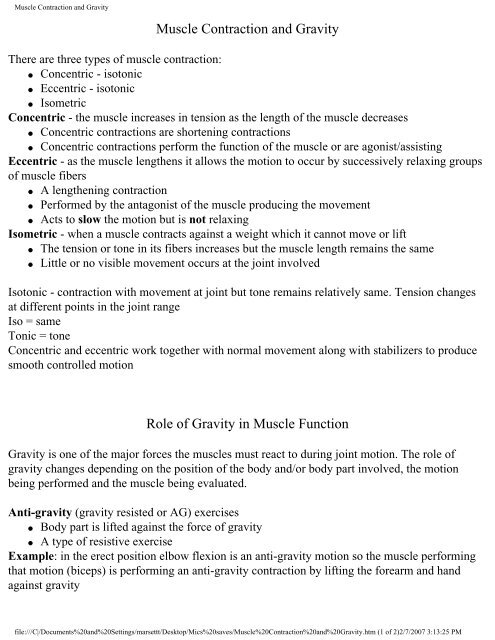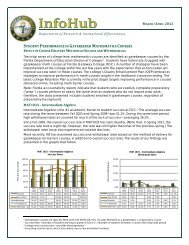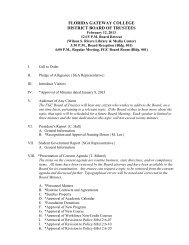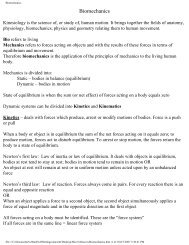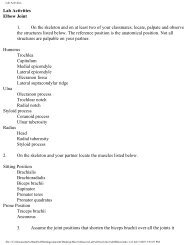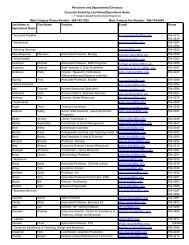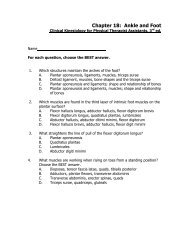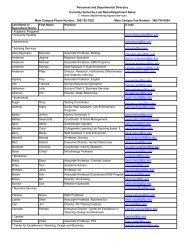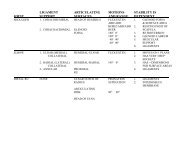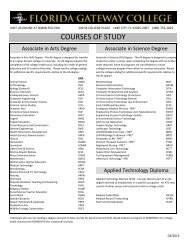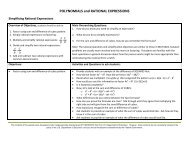Muscle Contraction and Gravity
Muscle Contraction and Gravity
Muscle Contraction and Gravity
Create successful ePaper yourself
Turn your PDF publications into a flip-book with our unique Google optimized e-Paper software.
<strong>Muscle</strong> <strong>Contraction</strong> <strong>and</strong> <strong>Gravity</strong><br />
<strong>Muscle</strong> <strong>Contraction</strong> <strong>and</strong> <strong>Gravity</strong><br />
There are three types of muscle contraction:<br />
● Concentric - isotonic<br />
● Eccentric - isotonic<br />
● Isometric<br />
Concentric - the muscle increases in tension as the length of the muscle decreases<br />
● Concentric contractions are shortening contractions<br />
● Concentric contractions perform the function of the muscle or are agonist/assisting<br />
Eccentric - as the muscle lengthens it allows the motion to occur by successively relaxing groups<br />
of muscle fibers<br />
● A lengthening contraction<br />
● Performed by the antagonist of the muscle producing the movement<br />
● Acts to slow the motion but is not relaxing<br />
Isometric - when a muscle contracts against a weight which it cannot move or lift<br />
● The tension or tone in its fibers increases but the muscle length remains the same<br />
● Little or no visible movement occurs at the joint involved<br />
Isotonic - contraction with movement at joint but tone remains relatively same. Tension changes<br />
at different points in the joint range<br />
Iso = same<br />
Tonic = tone<br />
Concentric <strong>and</strong> eccentric work together with normal movement along with stabilizers to produce<br />
smooth controlled motion<br />
Role of <strong>Gravity</strong> in <strong>Muscle</strong> Function<br />
<strong>Gravity</strong> is one of the major forces the muscles must react to during joint motion. The role of<br />
gravity changes depending on the position of the body <strong>and</strong>/or body part involved, the motion<br />
being performed <strong>and</strong> the muscle being evaluated.<br />
Anti-gravity (gravity resisted or AG) exercises<br />
● Body part is lifted against the force of gravity<br />
● A type of resistive exercise<br />
Example: in the erect position elbow flexion is an anti-gravity motion so the muscle performing<br />
that motion (biceps) is performing an anti-gravity contraction by lifting the forearm <strong>and</strong> h<strong>and</strong><br />
against gravity<br />
file:///C|/Documents%20<strong>and</strong>%20Settings/marsettt/Desktop/Mics%20saves/<strong>Muscle</strong>%20<strong>Contraction</strong>%20<strong>and</strong>%20<strong>Gravity</strong>.htm (1 of 2)2/7/2007 3:13:25 PM
<strong>Muscle</strong> <strong>Contraction</strong> <strong>and</strong> <strong>Gravity</strong><br />
<strong>Gravity</strong>-assisted (GA) exercises<br />
● Movement of a body part is assisted or helped by gravity<br />
● Less work is required by the muscle since gravity is helping<br />
● Patient positioning will determine the assistance given the muscle<br />
Example: in the erect position elbow extension is a gravity-assisted motion so the muscle<br />
performing that motion (triceps) is assisted by gravity with little or no muscular work required by<br />
that muscle<br />
<strong>Gravity</strong>-eliminated (GE) exercises<br />
Movement of a body part is neither hindered by or assisted by gravity<br />
<strong>Gravity</strong> has no effect on the performance of the muscle<br />
Most movements in the transverse plane are gravity-eliminated<br />
Example: in the supine position hip abduction is a gravity-eliminated motion so that muscle<br />
which performs hip abduction (gluteus medius) is neither helped nor resisted by gravity<br />
file:///C|/Documents%20<strong>and</strong>%20Settings/marsettt/Desktop/Mics%20saves/<strong>Muscle</strong>%20<strong>Contraction</strong>%20<strong>and</strong>%20<strong>Gravity</strong>.htm (2 of 2)2/7/2007 3:13:25 PM


